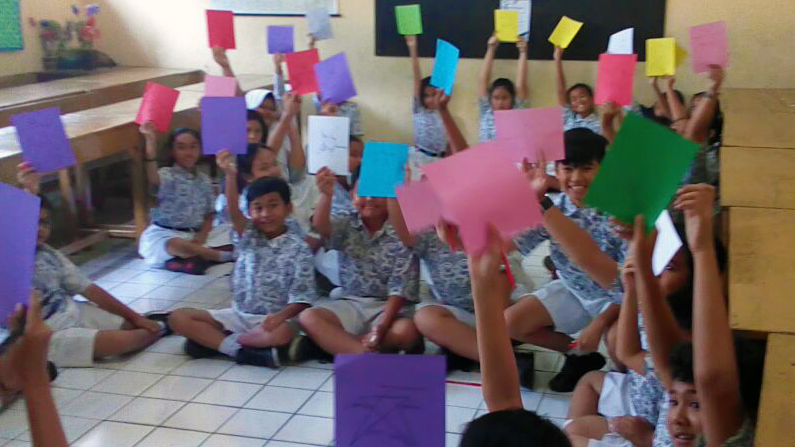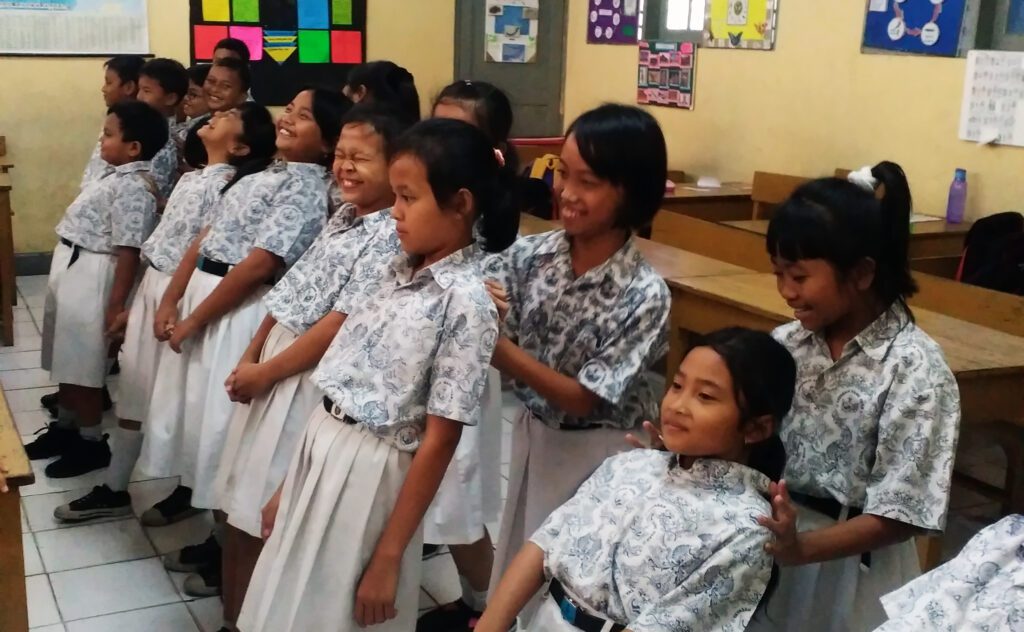The Learning to Live Together Programme (LTLT) was first introduced to Indonesia during a facilitator training workshop conducted by GNRC South Asia and Arigatou International – Geneva, in partnership with the Indonesian National Commission for UNESCO in 2012 and with the help of Ms. Wati Wardani and Mr. Fendra Kusmani. Since then, it has reached more than 1,000 children in more than 30 schools in the country.
Ms. Wati Wardani lives in Jakarta, with her husband and four children. She is currently the Country Coordinator of Generation Global, the Tony Blair Institute for Global Change, and has been a facilitator of the Learning to Live Together Programme for several years. In 2017, she was invited to participate in a 5-days Training of Trainers workshop in Annecy, France, where she became an Official Trainer of the Programme.
Four Facilitator Training Workshops have been conducted in Indonesia during the past four years, reaching almost 100 teachers from kindergarten, elementary, and junior high school levels.
What are the main issues affecting children in these schools, and how has the Programme contributed to tackling these issues?
Bullying and violence at school have been the main issues faced by the students across the different schools, but most teachers and educators in the country lack the institutional support to gain skills and knowledge to help them tackle these problems. Many teachers said that they knew the issues brought on the training – peace, respect, tolerance- but didn’t know exactly how to deal with them with their students.
What transformations have you been able to see in students and teachers?
After the implementation, teachers have reported that students were able to construct a sense of togetherness and awareness about friends, family, and others; increase their sense of respect and empathy across divides, and transform their mindset to become agents of change.
Many teachers have said that they were aware of the issues brought up in the training—peace, respect, tolerance—but didn’t know exactly how to deal with them with their students:
“I know bullying and lack of respect is around the schools but I didn’t know what to do, other than telling the students not to do this or that. The training has opened my mind on how simple it is to bring a positive impact using the methods and techniques from LTLT.” –Teacher
“The LTLT training has transformed me to be a better teacher. I always remember to create a safe environment for my students to learn and explore their potentials’. –Teacher
“As a kindergarten teacher, I have tried to adapt LTLT techniques to fit my students’ ability. More importantly, I’m more aware of teaching values that LTLT promotes–respect, empathy, responsibility–and to create a dialog between me and the students, and among the students.” –Teacher
What do you think is the added value of the Learning to Live Together Programme for Indonesian society?
Schools are looking for ways to teach values, particularly, related to the current issues – lack of respect, intolerance. LTLT is about teaching that values with its new pedagogical approach.
What are your plans regarding the LTLT in Indonesia for the future?
We are excitedly waiting for the translation of the LTLT manual to Indonesian. Having the manual translated into our language will allow us to further train facilitators/teachers of elementary schools in different parts of the country.

